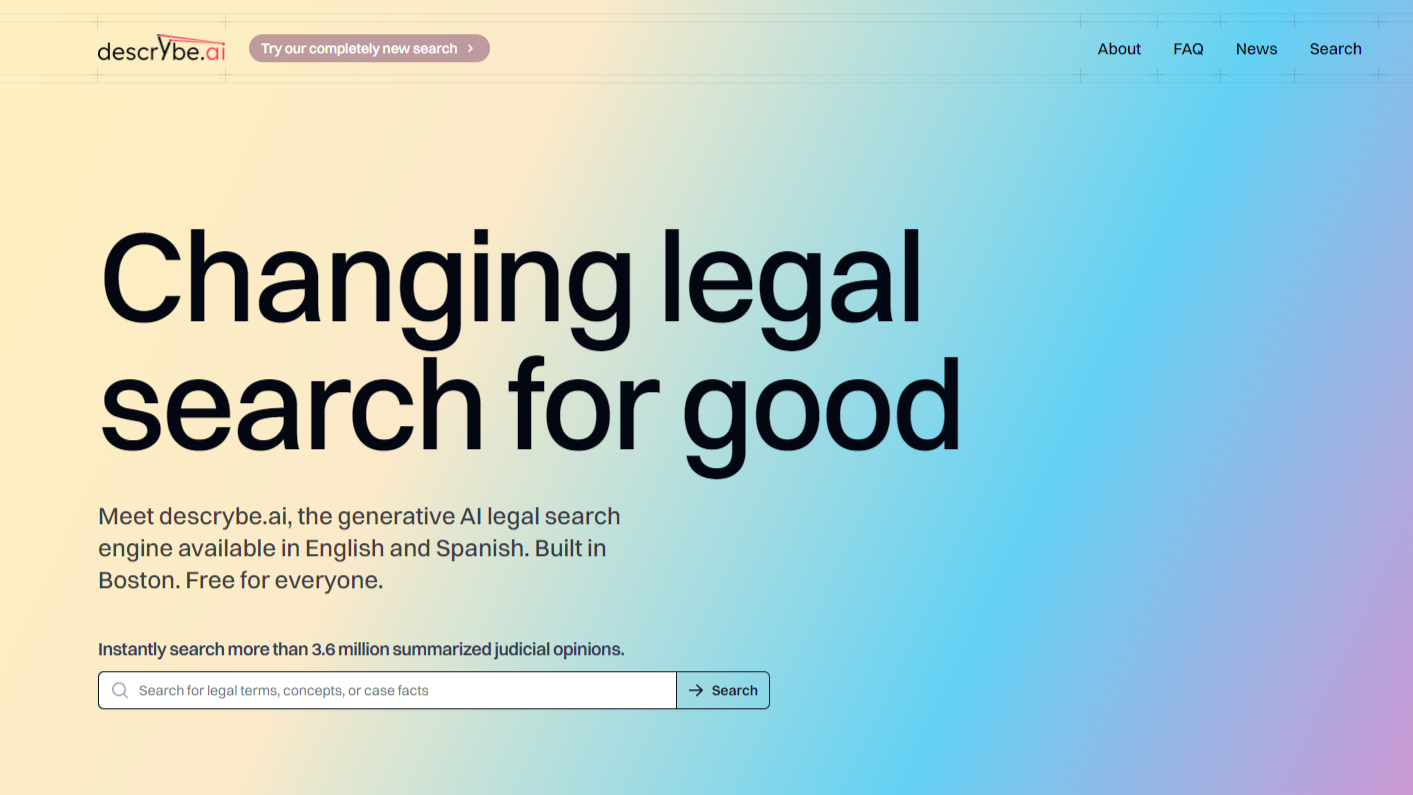With the legal research startup Casetext now kaput, having been killed off after its acquisition by Thomson Reuters, a newer legal research startup, Descrybe, has secured its spot in the widely used curriculum of the National Society for Legal Technology, joining established players including Lexis+, Westlaw and Bloomberg Law as one of six core research tools taught across more than 350 universities and law schools in 11 countries.
The Boston-based Descrybe is replacing Casetext in the NSLT program, stepping into a space left vacant after Thomson Reuters acquired the pioneering legal research platform for $650 million in 2023. With Casetext’s free search features no longer available, educators have been looking for accessible alternatives to introduce students to AI-powered legal research.
Doug Lusk, NSLT’s founder and CEO, praised Descrybe’s approach to simplifying complex legal content. “This platform stands out for its ability to distill complex court opinions into clear, accessible summaries while preserving the nuance and legal significance of the original text.”
Descrybe’s recently launched Legal Research Toolkit offers natural language search capabilities, case summaries, citation analysis, and bilingual access to over 3.6 million federal and state court opinions. The company says that its platform has attracted more than 50,000 monthly users, with both free and paid versions.
The company has earned national recognition, including a 2024 Anthem Award for Best Use of AI, two Webby Award nominations for AI and Law, and a double finalist spot at the 2024 American Legal Technology Awards for Startup of the Year and AI Innovation. It was also a finalist in the ABA Techshow Startup Alley this year (which I oversee).
Co-founder Kara Peterson, who was named a 2024 ABA Women of Legal Tech honoree, called the curriculum inclusion “a huge validation of the platform we’ve built.”
As I recently said of Descrybe, “With another innovative and low-cost legal research service, Casetext, now gone, thanks to its acquisition by Thomson Reuters, there is a need for a service such as Descrybe — and there is a huge opportunity for Descrybe to fill that gap.”
This is clearly a step in that direction.
 Robert Ambrogi Blog
Robert Ambrogi Blog